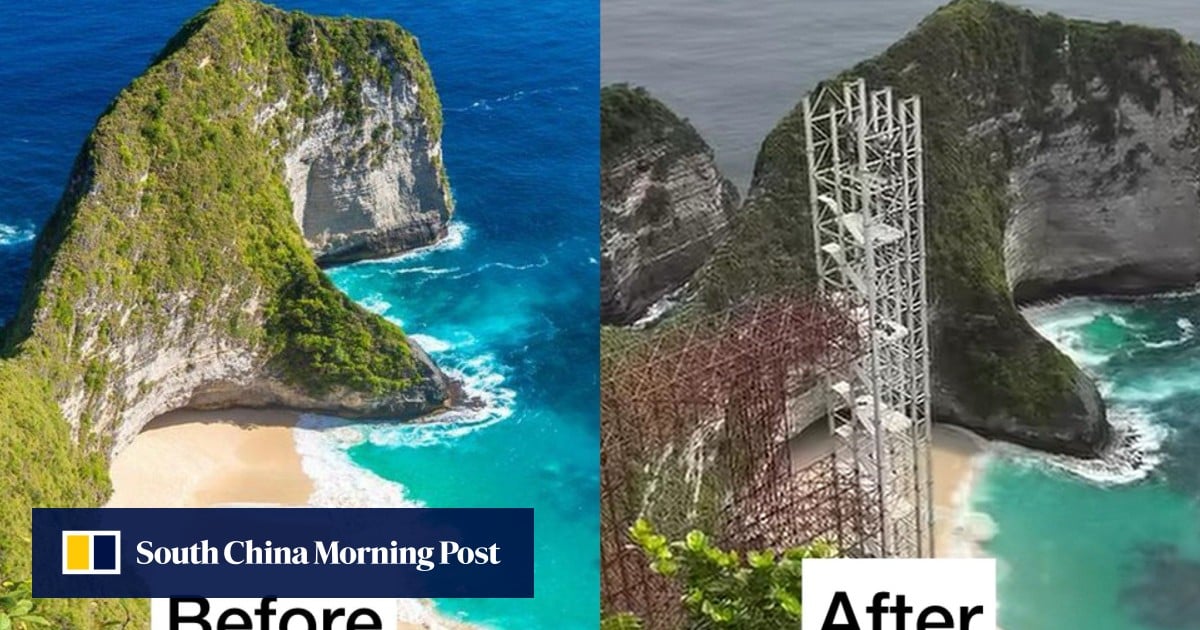Bali's Governor, I Wayan Koster, has issued a definitive order to permanently halt a contentious China-backed glass lift project on one of the island's most iconic cliffs. This decisive action comes in the wake of widespread public outrage ignited by viral images of the ongoing construction. The incident has cast a spotlight on Indonesia's often-fragmented permit system, revealing a recurring "governance paradox" where central government approvals frequently override local community visions and environmental concerns.
Public Backlash Drives Shutdown
The immediate catalyst for the shutdown was intense public backlash. Photos circulating online depicting the construction of the glass elevator at Kelingking Beach, a world-renowned tourist spot on Nusa Penida island famous for its distinctive "T-Rex" shaped cliff, sparked an outcry. Critics raised concerns about environmental impact, aesthetic degradation, and the commercialization of a natural wonder. Governor Koster’s strong stance, expressed on Sunday, firmly directed PT Indonesia Kaishi Tourism Property Investment Development Group to cease all construction activities.
The Controversial Project Explained
Valued at approximately 200 billion rupiah (US$12 million), the ambitious project aimed to install a 182-meter (597-foot) glass lift coupled with a 64-meter (210-foot) bridge. Its primary objective was to improve accessibility to Kelingking Beach, where tourists currently navigate a perilous 300-meter (980-foot) descent via a narrow and often dangerous path, leading to frequent injuries. The development was a joint venture between the China-funded PT Indonesia Kaishi and local partner PT Bina Nusa Properti.
A Symptom of Deeper Issues
Analysts suggest that the Kelingking Beach saga serves as a compelling case study of a broader systemic challenge within Indonesia. The country's "governance paradox" often sees major infrastructure and tourism projects pushed through by central government bodies, sometimes disregarding local environmental sensibilities, community opposition, or existing spatial planning. This fragmented approval process creates friction and allows projects that may be deemed unsuitable by local authorities or residents to gain traction. The permanent cessation of the Bali cliff lift project underscores a growing demand for greater transparency, local stakeholder consultation, and a more coherent, integrated approach to development approvals across the archipelago. This incident highlights the need for a balanced approach that respects both economic development and environmental/cultural preservation.

